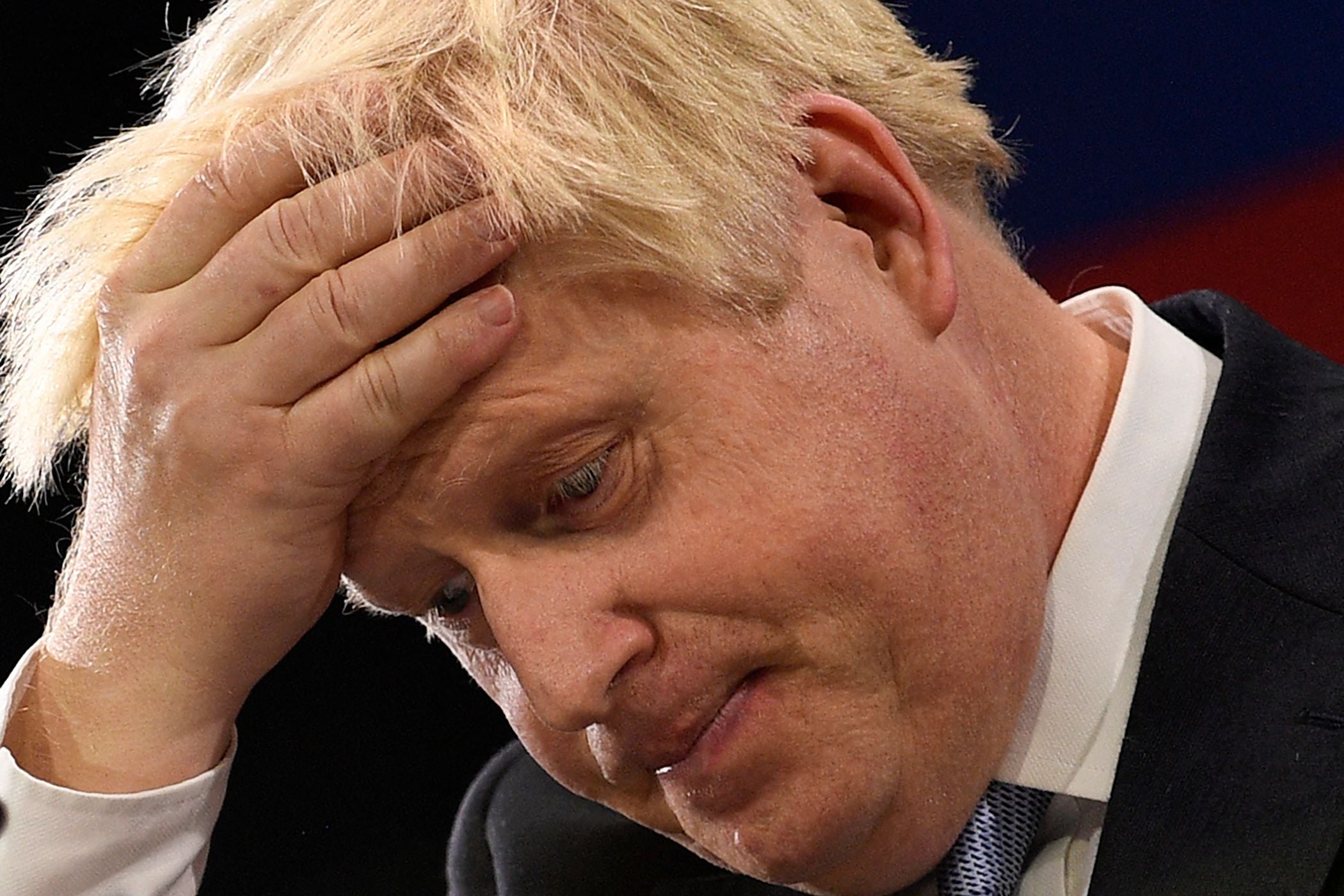Boris Johnson won his vote of confidence by a smaller margin than you might think
If just 32 Conservative MPs had changed their minds and voted against Johnson, instead of for, he would have been ousted


Your support helps us to tell the story
From reproductive rights to climate change to Big Tech, The Independent is on the ground when the story is developing. Whether it's investigating the financials of Elon Musk's pro-Trump PAC or producing our latest documentary, 'The A Word', which shines a light on the American women fighting for reproductive rights, we know how important it is to parse out the facts from the messaging.
At such a critical moment in US history, we need reporters on the ground. Your donation allows us to keep sending journalists to speak to both sides of the story.
The Independent is trusted by Americans across the entire political spectrum. And unlike many other quality news outlets, we choose not to lock Americans out of our reporting and analysis with paywalls. We believe quality journalism should be available to everyone, paid for by those who can afford it.
Your support makes all the difference.Boris Johnson won Monday night’s vote of confidence by 211 votes to 148. At first glance, this seems like a fairly commanding win – and I mean “at first glance”.
When comparing the size of two numbers, we are taught to look at the first digits of the numbers first. If two numbers have the same number of digits, the one with the larger digit in the leftmost column is the bigger of the two. To determine whether Boris Johnson is staying or going we simply need to register that the two in the hundreds column of the for votes is bigger than the one in the hundreds column of the against vote and we can stop there – Johnson is safe.
Without scrutinising the remaining digits, we don’t know whether Johnson’s win was as narrow as one vote or as wide as 199. A casual glance might leave us with the impression that Johnson’s margin of victory was somewhere in the middle at around 100. In fact, it was just 63.
This numerical shortcut is exactly the sort of cognitive timesaver that supermarkets exploit in their pricing strategies. Marketing theory suggests that because we read left to right, a cursory glance will take account of the first digit(s) on a price tag, but often ignore everything to the right of the decimal point. Prices which end in the 90s take the most advantage of this phenomenon. Rather than reading 4.95, which is nearly five, upon a quick glance, we interpret this as four, knocking off the extra 95 pennies. Unwittingly, we are being tricked into thinking products are cheaper than they are because our brains are subconsciously rounding down.
Perhaps the more startling fact about the confidence vote is that if just 32 Conservative MPs had changed their minds and voted against Johnson instead of for, he would have been ousted. Out of the 359 MPs who voted (despite one of them being under investigation on suspicion of rape) fewer than 10 per cent of them changing their minds would have brought Johnson down.
This sometimes surprising fact – that the change required to see a different result is half the margin of victory – is a feature of what mathematicians call a two-player “zero-sum” game. A zero-sum game is one in which there is a finite pot of resources for which the players in the game compete – the gains and losses of all the players added together sum to zero.
One player’s loss is another player’s gain. A vote for one side is a vote against the other. Many sports and games, including chess, boxing, tennis and poker are zero-sum. The pot taken home by the winner in a game of poker equals the losses of those unfortunate or unskilful enough to go all in and lose (unless the game is being played at a casino and the house is taking a cut).
In their negotiating handbook, Getting To Yes, Roger Fry and William Ury tell a charming (but possibly apocryphal) story about frisbee, which illustrates the difference between zero-sum and non-zero-sum games.
By the early 1960s, the frisbee craze, although big in the US, had still not caught on in the UK. Very few Brits had heard of the game, let alone seen it in action. Fry and Ury tell of an American father and his son vacationing in London who head to Hyde Park to play frisbee. Their exertions draw a small audience of fascinated Brits who watched the impressive and previously unseen game enrapt. Eventually, one English onlooker plucks up the courage to approach the father and ask, “We’ve been watching the game for 15 minutes now and we can’t work it out, who’s winning?” Frisbee is not a zero-sum game – no one has to lose for someone else to win.
To keep up to speed with all the latest opinions and comment, sign up to our free weekly Voices Dispatches newsletter by clicking here
Non-zero-sum games can be non-competitive like frisbee, or competitive. Trade is often cited as an example of a competitive non-zero-sum game. Each party wants to get the best deal they can, but both parties can benefit from a well-struck trade deal. Neither side has to lose out for the other to benefit.
In contrast, zero-sum games are always competitive, and Johnson’s confidence vote was very much zero-sum. The finite pot of Conservative MPs’ votes was to be divided between “confidence” and “no confidence”. Every vote that was cast for Johnson also meant one fewer vote cast against him and vice versa.
Despite the fact that Johnson won his vote of confidence, in many ways, the narrow margin of victory is a disaster for both him and the Conservative Party. The real winners last night were the Greens, the Lib Dems, Labour and the SNP who will benefit from a deeply divided Conservative Party led by a man who is suffering rock-bottom approval ratings.
Johnson will limp on for now, technically safe from a further leadership challenge for another 12 months – but a higher proportion of his MPs voted against him last night than voted against Theresa May in 2018. Like his immediate predecessor and those who have won narrow party votes on their leadership before (Thatcher in 1990, Major in 1995), this is an omen that suggests he may not be long for this political world.
Join our commenting forum
Join thought-provoking conversations, follow other Independent readers and see their replies
Comments